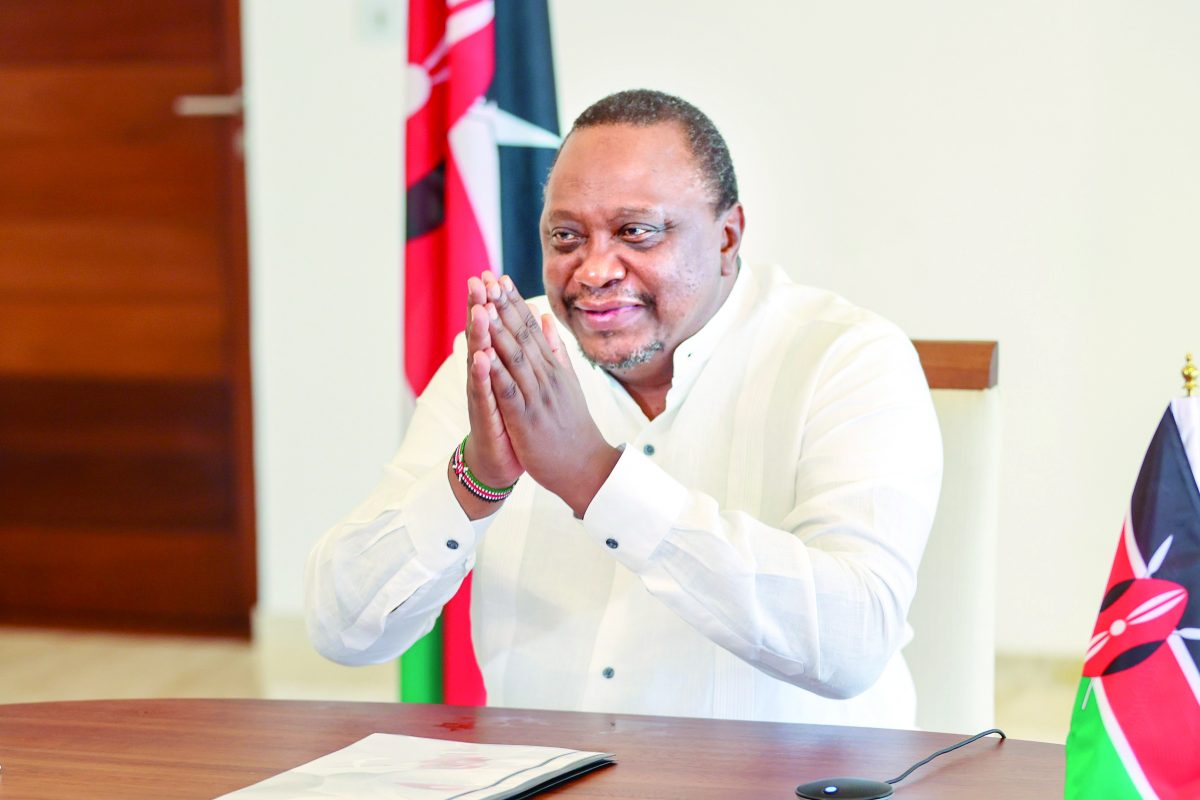Uhuru aids Ethiopia and Tigray to ‘silence guns in principle’
By Noel.Wandera and Story Agencies, November 4, 2022When President William Ruto was being inaugurated into office he said he had tasked retired President Uhuru Kenyatta “to help us with efforts to broker peace in the region.”
By tint of the declaration, Uhuru earned himself a new assignment and joined the elders’ club of former African Heads of State who have in the past been engaged to deal with peace efforts in parts affected by conflict in the continent.
Going by his relationship with leaders in the region and mien, it was a perfect job for the retired President, who seems to have taken the assignment with gusto.
His personal charm and legendary warm handshake might have come in handy to help broker peace among warring groups in Ethiopia after a deal was signed in South Africa on Wednesday.
Uhuru was part of a team that included former Nigerian President Olesegun Obasanjo who was the chief mediator to broker the historic deal.
The Ethiopian government and rival Tigray People’s Liberation Front (TPLF) forces, who control the northern Tigray region, signed a “permanent cessation of hostilities” to end a war that has claimed thousands of lives.
According to the deal, the warring parties will cease hostilities and “silence guns in principle” in Tigray region, and work on ending the war “without delay.”
Uhuru has camped in Pretoria, South Africa, since Tuesday, October 25, for the talks that were shepherded by the African Union.
The parties agreed on “systematic, orderly, smooth and coordinated disarmament, restoration of services, unhindered access to humanitarian supplies, protection of civilians, especially women children and other vulnerable groups,” said Obasanjo.
“We have now signed an agreement. We will leave the past behind us. Making peace has proved elusive. Hundreds of thousands have died,” said Tigray’s Getachew Reda at the signing ceremony.
While the deal brings peace to the populous nation, after years of war-related unrest, which hit businesses in most parts of the nation, the move is significant for Kenya because it will certainly open up an opportunity for Kenyan investors to tap investment opportunities in the populous nation.
Civil strife hurting economy
The civil war, pitting the federal government and the Tigray People’s Liberation Front (TPLF) started in November 2020 and has resulted in over 600,000 people dying as a result of war-related violence and famine, besides disrupting businesses.
As part of economic liberalisation, Ethiopia’s Prime Minister Abiy Ahmed in 2021 introduced liberalisation measures intended to increase foreign participation in the telecommunications, logistics, electricity and financial sectors in a bid to boost investment.
This attracted leading Kenyan companies amongst them Safaricom, KCB and Equity Banks, as well as state electricity utility generator KenGen eager to mine the emerging investment opportunities in the horn of the African country.
Abiy’s efforts to open up the economy have however been hampered by the two-year war that is concentrated in the Northern region.
The peace deal will therefore come as a relief to the Kenyan companies and investors, who are expected to line up and take advantage of business opportunities that will be offered through Ethiopia’s 120 million people.
The country boasts a 6.1 per cent Gross Domestic Product (GDP) as per World Bank statistics, equivalent to $107 billion (Sh11.9 trillion) and a good nation for investment going on the global interest in the nation.
Amidst the war, Safaricom, Equity Group and KCB Group have been laying the foundation for entry into the horn of Africa nation by building the requisite infrastructure to start doing business once a permanent deal was achieved.
Others like state electricity utility generator KenGen have ongoing drilling projects worth Sh440.34 million, which had to be scaled back due to security concerns.
Last month, Safaricom broke new ground by launching its Ethiopian subsidiary, which now covers 10 cities, with plans to expand to 25 cities by 2023.
This is after the Ethiopian Government announced plans to partially privatise Ethio-Telecom after Abiy took power in 2018.
The telco will be banking on the permanent peace to expand its services to Tigray, which boasts 7.1 million people in order to fulfil its licence obligations that require the subsidiary to cover 25 per cent of the Ethiopian population.
In September this year, the Ethiopian Government opened up the banking space by allowing the participation of foreign lenders who are now permitted to buy up to 30 per cent stake in local banks. The new rule also allows foreign individuals and foreign non-bank investors to have a maximum of 40 per cent local bank.
This has opened a growth platform for KCB Group and Equity Group, which have representative offices in Ethiopia. KCB, which also operates a digital financial-services partnership in Ethiopia has not ruled out establishing a stand-alone business.
In the case of Co-operative Bank, the lender said it preferred a joint venture through a joint venture with Ethiopia’s cooperative movement, in a deal similar to its South Sudan business in which the government has a stake.
